The better part of an hour passed, and by then most of the men had gone to their tents to sleep. Merkus and Inalchi had nodded off, upright and leaning on each other. The night was quiet, aside from the chirp of crickets and the occasional hoot of an owl. Khojin was admiring the golden decorations on the sheath of Zhisen’s sword when a calm voice sighed along with the gentle breeze. “Do you like it?”
Startled, Khojin looked away from the gilded dragon and toward Zhisen, who was leaning against the log opposite him. In any other circumstance, Khojin would have ignored the question, but it seemed strange to him that this was the first thing Zhisen had to say when waking up, so he answered. “Do I like the sheath?” Zhisen nodded, re-tying his hair with a black ribbon. “It seems well-made.”
“You’re like my brother. He never says anything is beautiful, just that it is well-made,” Zhisen said.
Khojin scoffed. “Your brother is little better than the crows who pick at corpses on a battlefield.”
Zhisen blinked, then chuckled. “I was talking about Ziying.”
At that, Khojin faltered. Then why speak of him as if he is still alive? Zhisen finished tying his hair up, but he did not tie all of it— it was cut shorter on one side in the front, such that some of it tumbled down, framing the left side of his face. It seemed that he wished to appear less severe than he would if he tied it all back. When Zhisen retrieved his xiao guan from his saddlebags, deposited on the grass by Merkus, Khojin understood why Zhisen spoke of his late brother that way. The golden hair ornament was distinctive— tall, lacking a pin or jewel. Khojin remembered Prince Ziying wearing it. “In that case, I don’t mind being compared to your brother,” Khojin said, and offered Zhisen his waterskin.
Zhisen seemed surprised, but took it. “Thank you.” He drank, then asked, “Did you know him?”
Khojin said, “He was the only man who tried to argue for peace before the Battle at Liguo. Not that anyone listened to him.” Zhisen swallowed the mouthful of water and resealed the skin. “He seemed—”
Cutting him off, Zhisen said, “Too good to be true.”
At that, Khojin wondered what was going through Zhisen’s head. It was what he had thought about Ziying, too— that he couldn’t possibly be the heir to the Jirandai Empire. But Zhisen, despite the fact that he seemed to care about Ziying a great deal, did fit the image. He was excellent at fighting, was rumoured to have a grip on the court stronger than the Emperor, and every time he opened his mouth he seemed to speak with hidden meanings. Why compare me to your brother, when we are foes?
Zhisen gave him an answer, though. “I’ve come to propose a plan to you.”
“What plan?” Khojin asked, taking his waterskin back.
Before Zhisen could answer him, Inalchi interjected, having woken up. “I see you’re awake at last.”
“I told you to wait and you knocked me out,” Zhisen answered calmly. “You’re hospitable indeed.”
Merkus woke up, rubbing his eyes, and seemed confused. “What’s going on?”
Zhisen was the one who answered him, all the while holding Inalchi’s gaze. “I am merely thanking Inalchi for so gently welcoming my news.” Merkus winced and looked away. “Rather, I’m glad I decided to come myself rather than subject one of the imperial guards to well-placed blow to the head.”
Khojin might have laughed if that would not further upset Inalchi, who demanded, “Why are you here? What reason do you have to descend from your lofty palace and grace us, filthy barbarians that we are, with your presence? Surely you haven’t come just to deliver a list of hides and say hello.”
He did not seem moved by Inalchi’s too-evident distaste. “Filthy? No, you’re not filthy— after all it seems that with my guidance even Khojin was able to find the definition of ‘bath.’”
Inalchi unsheathed his hunting knife, and Khojin was quite inclined to let Inalchi make minced meat out of him, but Merkus interrupted by laughing. Slowly, Inalchi turned and glared at him. Merkus managed to compose himself somewhat, but he said, “Hey, hey, don’t kill a man for joking.”
Zhisen leaned forward to look around Inalchi at Merkus. “Have we met?”
“No,” he said. “My name is Merkus. Of Tohkta.”
“Delighted to make your acquaintance,” Zhisen answered cordially.
Merkus seemed to realize that they had been speaking Erdeni the whole time. “Who taught you our language? You’re so fluent.” In the wake of Merkus’ curiosity, Inalchi’s irritation sizzled into nothingness, and he sat down in defeat. Before Zhisen could answer, he added, “And why is your armour standard-issue?”
Khojin wasn’t entirely sure why Merkus cared about the answers for any of these questions, but it was probably related to the novelty of talking to someone who wore gold in their hair and had milk-white skin. It helped that Zhisen seemed inclined to humour him. “Ziying taught me Erdeni. And if I wore armour different from the rest of the military, I would be marked in battle as the best man to kill.”
He could not tell if that reasoning was only clever, or clever and dishonest. Khojin asked, “And how could your men mark you in battle? My men know me by my steed, but yours?”
Zhisen glanced at him sidelong, and a smile tugged at his mouth so briefly that it was like a dismissive smirk. “Better develop a coherent strategy than become a flag of morale to be shot down.”
Khojin might have argued that leading by example was a far superior method when talking of military loyalty, but he supposed that loyalty was not as important to the Jirandai, who ruled by force. In any case, Inalchi was the one who spoke next. “Enough small talk.” Inalchi met Zhisen’s gaze, not looking any less displeased to be sharing oxygen with him. “Why are you here? What is the plan you mentioned?”
Zhisen said, “Well, I won’t go into detail since there’s much to say and I hate to repeat myself. The short version is that I’ve told the court I want to negotiate peace before they declare war on you all, but I have come to propose a strategy by which you will win the war and I will oust Junsai to become heir.” At that, Inalchi’s eyebrows raised in surprise, and Merkus frowned. “As Emperor, I will make provisions for freer trade between us and the western kingdoms, and if you still wish to continue the tribute system, it will be more equal, but I will be able to nearly double our payment. At least in rice and silk.” He paused, and after a moment looked up from where he was sitting on the grass to meet Khojin’s eyes. “In any case, the end goal is that we forge a proper, non-extortive alliance.”
There was a profound stillness. In the end, Khojin said, “I assume you want to tell my father.”
Zhisen opened his mouth, but Inalchi interjected. “Hold on, Khojin, have you lost your mind? How can you believe him? He’s one of them, why in the world would he want peace with us? Let alone paying greater tribute! He’s probably trying to kill Uncle Tolon—”
Khojin cut him off. “I doubt it. After all, he’s declared self-interest.”
Inalchi scoffed. “Why would he truly want to be Emperor? He’d have more power as he’s doing now, like a puppet master behind the court’s curtains. Let Junsai be the shining figurehead, no?”
“If I may?” Zhisen said. Inalchi looked at him again. “You’re right to think that I would retain more autonomy if I let Junsai become Emperor. But I want him dead, not inaugurated.”
Another stillness settled over their campfire. He had said it coolly, as if it was totally natural to declare fratricidal intentions. Inalchi gave him a chance. “Why? You’ve just said you don’t especially want the throne. What other reason could you have to murder your own brother?”
Zhisen looked at him with wide eyes, then laughed. His smile was chilling. “Murder? Oh, no, I’m not going to kill him myself. He committed treason, after all, and he’ll be executed for it.”
Treason? Khojin wondered. But then, seeing that brutally cold wrath in Zhisen’s eyes, and seeing the firelight glide on his xiao guan, Khojin understood. “He killed Ziying.”
Without even looking at him, Zhisen said, “Yes. And he’ll repay me my loss in blood.”
The darkness that invaded Zhisen’s gaze made his delicate features look like porcelain, as if he was not quite human. Merkus looked disturbed, and Inalchi did not seem to have the voice to answer with. So, Khojin asked, “And for a dead man, you’re willing to betray your people and help us win the war?”
Zhisen met his eyes again, no longer watching the fire. “If I cannot avenge someone who was unconditionally kind to me, then I deserve to die for my ungratefulness. If I cannot bring about the peace he wished for until his death, then I deserve to be trampled on a rotting battlefield. And if I can do neither of these things, then I may as well kill myself, worthless as I am.”
Every word out of his mouth seemed to hold the power to make the world go silent.
Khojin had never heard such a profound conviction in any voice before. He could not fathom how much Zhisen must have loved Ziying to speak as if the only thing he lived for was to achieve his brother’s goals. It was startling to hear that depth of emotion from Zhisen’s mouth, when Khojin’s first impression of him had been that he was arrogant and condescending. But to call himself worthless was not prince-like.
Khojin understood that Zhisen had revealed the depth of his feelings on the matter to persuade them to at least trust him as far as they could throw him. Still, it was clear that he meant every word. To his surprise, though, Inalchi was the one who answered Zhisen first. “I hope that you mean it,” he said, and got to his feet. “Because if you’re lying, I’ll be the first to cut your throat and feed you to the wolves.”
With that, Inalchi entered the tent he was sharing with Merkus. There was a bit more silence, until Merkus asked Zhisen, “How do you know that Junsai killed him? I heard it was a rebel group from Tafei.”
Zhisen wet his lips and hesitated. But in the end, he said, “I overheard him speaking of it.” After a moment, he added, “But I don’t have all the evidence I need to incriminate him. So, I’ll need help.”
Merkus seemed to consider Zhisen as a whole, looking at his face ponderously. Then, he said, “I hope you’re as sharp as everyone says, or you’ll get your head chopped off for treason before Junsai.” He got to his feet, too, but unlike Inalchi politely added, “Good night.”
When he was inside the tent, Zhisen looked at Khojin again. For some time, he was quiet, and his face did not betray his feelings about what the two of them had said. He asked, “And what do you hope?”
The flames made his eyes look as red as Igtze. Khojin said, “To get some sleep.” Zhisen chuckled at that, and Khojin asked him, “Willing to share a tent with a man who stinks of horses, Your Highness?”
“Going to hold a grudge, are we?” Zhisen asked, and was removing his armour. “Charming.”
“I find it equally charming of you to have insulted me despite having planned this from the start.”
Zhisen only laughed, as if he was genuinely amused, not in retort or dismissal.
Khojin had no idea what to make of that, so he simply entered his tent and waited for Zhisen to join him. They slept with their backs to each other. Khojin waited and listened to his breathing, so that he would not sleep before Zhisen. His obvious shrewdness was all the more reason to be wary of him, no matter how much Khojin wanted to hope that this was going to be the last war between their people.

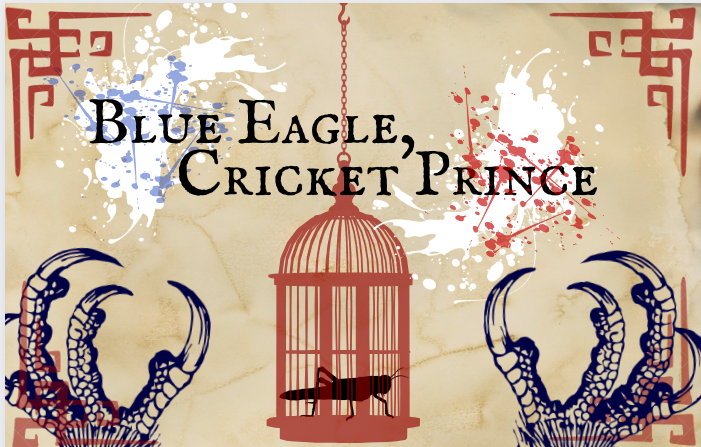
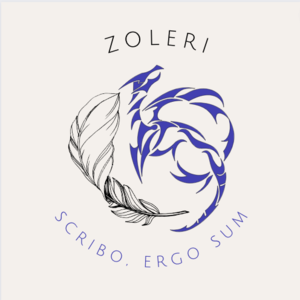
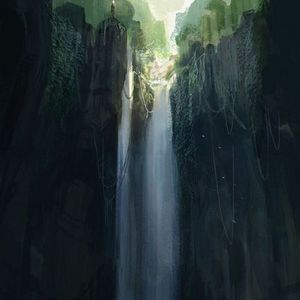







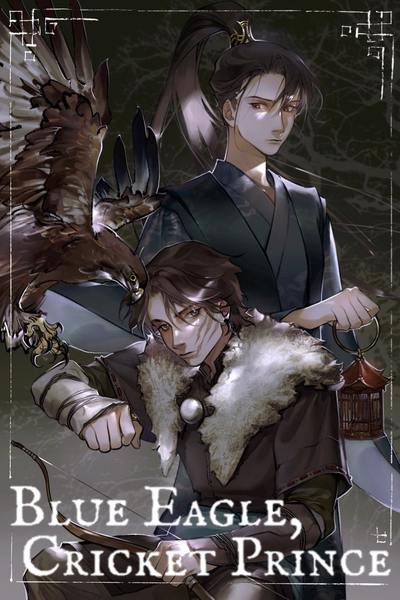
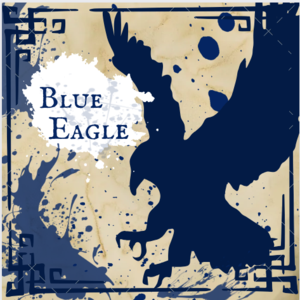
Comments (2)
See all